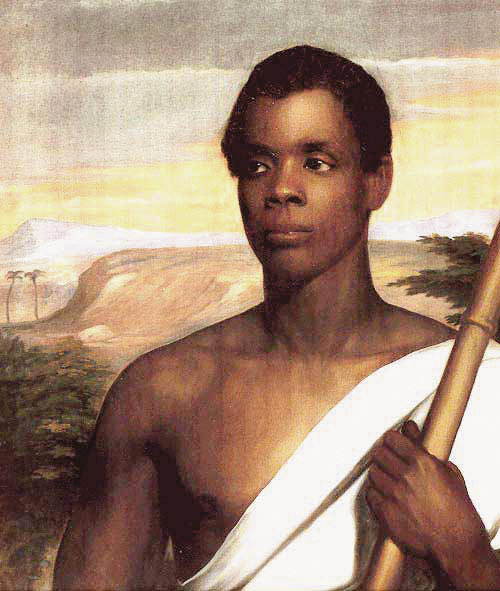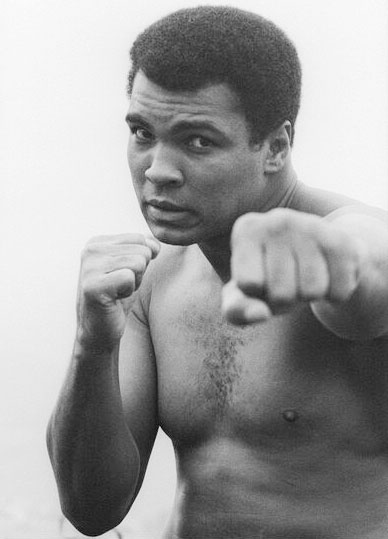
1995—Song-stylist and singer Phyllis Hyman commits suicide in New York City shortly before she was scheduled to perform at a concert.
For the week of June 26-July 2
June 26
1899—Black inventor William H. Richardson redesigns the baby carriage. While the idea for the baby carriage is nearly 300 years old, Richardson’s patent, filed at the Boston patent office, included several new features including a special joint which allowed the bassinet to be turned to face the mother or whoever was pushing the carriage. Many of Richardson’s designs are still in use today. [There is some authority that Richardson’s patent was actually filed on June 18.]
1942—Harvard medical student, Bernard W. Robinson, becomes the first African-American to win a commission to the United States Navy.
June 27
1872—Paul Lawrence Dunbar, one of the most popular poets in Black American history, is born in Dayton, Ohio. Dunbar first gained national recognition with a collection of works published in 1896 entitled “Lyrics of a Lowly Life,” which included “Ode to Ethiopia.” Despite the power of his poetry, Dunbar angered some Blacks who were concerned about “what will White people think” because he generally used Black dialect and not Standard English in much of his poetry. Dunbar’s first poem was published in a newspaper owned by high school friends and American airplane pioneers Orville and Wilbur Wright. The Wright brothers would also provide Dunbar with funds to open the Dayton Tattler—a newspaper geared toward the city’s Black community. Unfortunately, Dunbar died at the age of 34 in 1906 of Tuberculosis.
 June 28
June 28
1839—Cinque (original name Senghbe), after being kidnapped and sold into slavery, is placed on the Spanish slave ship Amistad. The son of a King of the Mende (Mendi) tribe in West Africa would lead the most successful revolt on a slave ship during the entire history of the slave trade. The Amistad was captured by the slaves who killed the captain and attempted to sail the ship to Africa. But due to delaying tactics by the remaining White crew, the ship was captured by a U.S. naval ship. Cinque and the rebellious slaves were taken to New Haven, Conn., and put on trial for murder. Amazingly they won their case and were allowed to return to Africa. 1971—Muhammad Ali is allowed to box again after winning a victory in the United States Supreme Court. The court overturned his conviction for refusing to be drafted and serve in the United States war in Vietnam. When asked how he could claim to be a pacifist opposed to war while being a professional boxer, Ali’s most frequent response was, “I am not going 10,000 miles from here to help murder and kill and burn poor people to help continue the domination of White slave masters over the darker people.”
1971—Muhammad Ali is allowed to box again after winning a victory in the United States Supreme Court. The court overturned his conviction for refusing to be drafted and serve in the United States war in Vietnam. When asked how he could claim to be a pacifist opposed to war while being a professional boxer, Ali’s most frequent response was, “I am not going 10,000 miles from here to help murder and kill and burn poor people to help continue the domination of White slave masters over the darker people.”
1978—The United States Supreme Court hands down the Bakke Decision which undermined affirmative action programs that had been designed to give preference to Blacks and other minorities in education and industry in order to compensate for decades of past discrimination. Although the court ruled affirmative action programs were constitutional; it struck down the use of quotas and that had the effect of weakening the affirmative action programs.
June 29
1970—NAACP Chairman Stephen Gill Spottswood creates a national controversy by telling the annual convention of the civil rights organization that the administration of President Richard Nixon was “anti-Negro” and was pursuing policies “inimical to the needs and aspirations” of African-Americans.
1972—The United States Supreme Court rules in a historic five to four decision that as it was being carried out in America, the death penalty was “cruel and unusual punishment” and thus violated the Constitution. The ruling also suggested that the death penalty was racist. At the time 483 of the approximately 600 people waiting to be executed in the nation were Blacks or members of other minority groups. However, since the decision, at least 38 states and the federal government have re-instituted the death penalty by supposedly meeting Supreme Court guidelines.